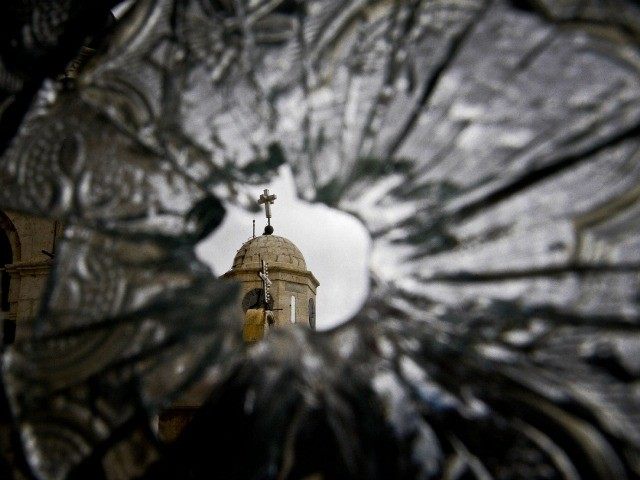In the midst of preparations for the World Meeting of Families to be celebrated in Philadelphia next September with the presence of Pope Francis, Archbishop Charles Chaput offered a grim assessment of the state of religious freedom in the world.
In an address commemorating the 50th anniversary of the Vatican Decree on Religious Freedom earlier this month, the redoubtable Archbishop Chaput said that more than 70 percent of the world now lives with some form of religious coercion, and rather than getting better, the situation seems to be in decline.
With the radicalization of Islam in different parts of the world, the archbishop said, “persecution has grown worse.” While Sharia law “claims to protect religious minorities,” in practice, “it slowly smothers them,” he said.
This radicalization has brought about atrocities ranging “from church bombings in Pakistan to the beheading of Christians in North Africa,” he said, and as a result, “tens of thousands of Christians are killed every year for reasons linked to their faith.”
Looking to the rest of the world, the situation isn’t much better. North Korea, the archbishop noted, “has wiped religion out of its culture,” while China “runs a sophisticated security system to interfere with, and control, its religious communities.”
Even in nations that profess a commitment to religious liberty, intolerance of authentic religious belief and practice are increasing. Once-Christian Europe now turns its back on its religious history, and “laws that interfere with religious dress, practice and public expression are on the rise,” he said.
In ignoring or even repudiating its Christian heritage, he continued, “Europe robs itself of any real moral alternative to the radical Islam spreading in its own countries.”
The United States stands at an important juncture in its history.
Though our religious freedom situation is comparatively good, things are changing, Chaput said. “More young people are disaffiliated from religion now than at any time in our country’s past,” he said, and many “have no sense of the role that religious freedom has played in our nation’s life and culture.”
This drift away from religious belief and practice means that fewer and fewer stand up to a growing official hostility toward religious faith in America.
“The current White House may be the least friendly to religious concerns in our history,” the archbishop said, and he foresees the situation deteriorating still further over time.
In the future we can expect “pressure in favor of things like gay rights, contraception and abortion services, and against public religious witness,” he said.
“We’ll see it in ‘anti-bullying’ policies that turn public schools into indoctrination centers on matters of human sexuality; centers that teach that there’s no permanent truth involved in words like ‘male’ and ‘female.’ And we’ll see it in restrictions on public funding, revocation of tax exemptions and expanding government regulations,” he said.
Yet according to Chaput, “the biggest problem we face as a culture isn’t gay marriage or global warming. It’s not abortion funding or the federal debt.” While acknowledging that these “are vital issues,” Chaput said that the deeper problem that is “crippling us” is that we no longer understand what “words like justice, rights, freedom and dignity” mean.
And so, we speak the same language “but the words don’t mean the same thing.” Our public discourse, he said, “never gets down to what’s true and what isn’t, because it can’t.”
“And it can’t be otherwise,” he said, “because the religious vision and convictions that once animated American life are no longer welcome at the table.”
Modern pluralist democracy, Chaput said, “has plenty of room for every religious faith and no religious faith. But we’re lying to ourselves if we think we can keep our freedoms without revering the biblical vision – the uniquely Jewish and Christian vision – of who and what man is.”
“Human dignity has only one source. And only one guarantee. We’re made in the image and likeness of God. And if there is no God, then human dignity is just elegant words,” he said.
Follow Thomas D. Williams on Twitter @tdwilliamsrome

COMMENTS
Please let us know if you're having issues with commenting.